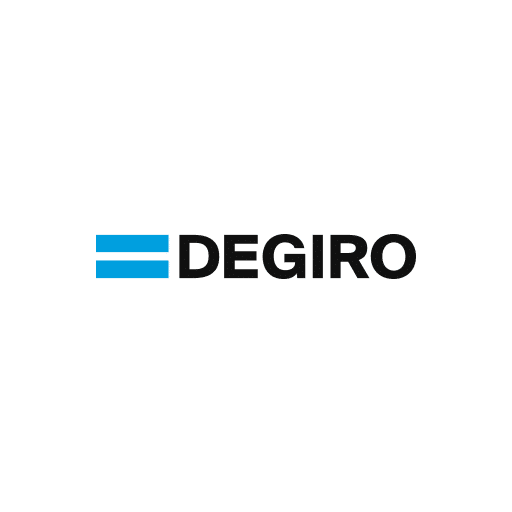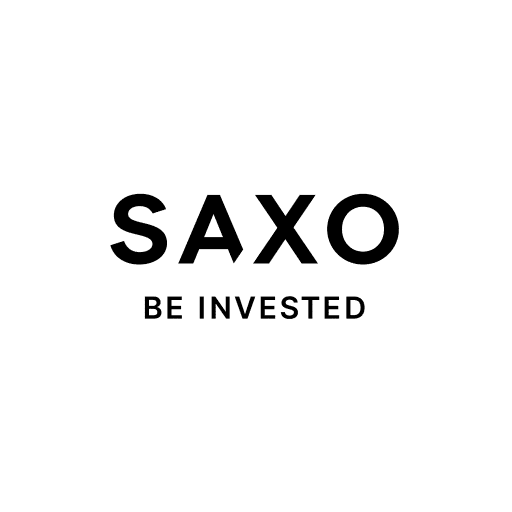Since its founding in 2015, Revolut has become an absolute behemoth in the fintech space. Starting with a major focus on currency transfer and conversion, they have since evolved to offer other financial services such as saving, investing, insurance, business accounts, and more.
Also, Revolut has become registered as a bank in the EU, bringing more regulation and safety for its customers.
Speaking of customers, they currently have over 35 million personal and 500,000 business customers across 38 countries. Their services can be used in 150+ countries and regions while supporting 36 currencies.
Can you invest in bonds on Revolut?
While you can invest in stocks, ETFs, commodities, and cryptocurrencies, unfortunately, you can not invest in bonds on Revolut. You can get bond exposure by investing in bond ETFs, but not directly in individual bonds themselves.
If you are looking for an alternative platform for bond investing, we got you covered. We will go through our top picks for bond investing platforms, including their pros and cons.
How to invest in bond ETFs on Revolut
When it comes to buying bond (or other) ETFs in the Revolut app, the process is fairly simple.
Select the “Invest” section at the bottom (1st screenshot below) when in the app. After that, click “Discover” (2nd screenshot), and you will be presented with a selection of popular ETFs. You can, of course, search for an ETF at the search bar on top (3rd screenshot).

Buying a bond ETF on Revolut
Bond investing: individual bonds or ETFs?
There are pros and cons when it comes to bond investing through ETFs or directly. ETFs (Exchange Traded Funds) offer a simple way to invest in a large number of bonds by using only one or a handful of funds. This diversifies the investing risk significantly but also carries an ETF management fee (reflected as TER – Total Expense Ratio), as well as Revolut’s 0.12% annual custody fee. Other cons of this approach include the fluctuation of bond prices (they are mostly negatively correlated with the movement of interest rates).
Pros of investing directly in individual bonds include locking the current interest rate and having a more predictable stream of investment income. However, it is difficult to diversify your risk when buying individual bonds only.
Best Revolut alternatives for bond investing
- Interactive Brokers | Best global broker overall
- DEGIRO | Best for simple bond trading
- Saxo Bank | Best broker for experienced traders
Investing involves risk of loss.
62% of retail CFD accounts lose money.
#1 Interactive Brokers
Interactive Brokers at a glance
Interactive Brokers has existed since 1978 and has survived multiple financial crises. Its major advantage is its reputation. It is also publicly listed on the NASDAQ exchange (ticker: IBKR), making it more regulated than some other platforms.
Other significant advantages of using Interactive Brokers are its wide selection of financial products from over 150 markets, solid trade execution (IB SmartRouting), and supporting 27 currencies in its account. There are also 100+ currency pairs between 24 currencies available for exchange.
Also, this is one of the rare platforms available globally, with some minor exceptions.
Some downsides of using Interactive Brokers are its somewhat complex fee structure, lengthier than average registration and fund deposit processes. However, the last point is largely mitigated using narrower spreads and lower FX fees than most competitors.
Speaking of the fee structure, there are two distinct plans to choose from – Tiered and Fixed, with the former fees depending on the trade volume. The fees also vary across different markets. You can see the full fee structure here.
Bond selection is wide, with U.S., Canadian, U.K., European, and Hong Kong bonds to choose from. The bond trading fees range from $1 (corporate, municipal) to $5 (treasuries) minimum for U.S. bonds, although this number rises with larger trading volumes. EU bonds have a €2 minimum fee, with a similar fee structure to US bonds. Bonds from other markets have their own fee structure, which you can check out here.
The Interactive Brokers Trader Workstation (TWS) platform offers many basic and advanced features, such as a demo account, watch lists, alerts and monitoring in real-time, advanced technical analysis tools, and more. One of the downsides of the platform is that the learning curve can be steep for beginners, even with the provided educational materials.

Source: private account screenshot
The IBKR GlobalTrader mobile app is a much more intuitive choice for beginner investors. It offers stocks, ETFs, and options trading in a more user-friendly format. Other app features include automatic currency conversions, fractional shares (only for US stocks), and more.
Overall, Interactive Brokers is a good choice for beginners and advanced investors looking for a secure broker and access to various financial instruments, including bonds. If you need more info, feel free to check out our more detailed review of Interactive Brokers.
#2 DEGIRO
DEGIRO at a glance
Founded in 2013 in the Netherlands (already in 2008 as an institutional broker), DEGIRO became one of the most popular European retail brokers, with over 2.5 million customers. It is also amongst Germany’s largest publicly traded companies and even secured a banking license, making the platform more strictly regulated than many of its competitors.
DEGIRO is best known for its low fees and wide selection of financial products. Some cons of using DEGIRO are the platform’s limited availability across countries, the mandatory use of a single base currency for deposits/trading/withdrawals, and the fact that bank transfers are the only deposit method available.
When it comes to DEGIRO’s fee structure, they are keeping it fairly simple. There are no deposit or withdrawal fees, as well as inactivity fees.
Keep in mind that they are currently only offering individual bonds from selected markets such as Belgium, France, Germany, Netherlands, and Portugal. They all come with a €2 commission + €1 handling fee.

Source: private account screenshot
Commission-free trading is also available for selected ETFs on this list, but remember there is a €1 handling fee. ETFs not found on this list also have a €2 commission fee.
Commission fees for stocks on different exchanges include:
- US/Canada exchanges: €1.00 commission;
- UK exchange: £1.75 commission;
- EU (except Germany-Frankfurt) and Turkish exchanges: €3.90;
- Australian, Germany-Frankfurt, Hong Kong, Japanese, and Singapore exchanges: €5.00.
Some of the most common additional fees include:
- A €1 handling fee for nearly all products;
- A €2.50 connectivity fee per exchange per year;
- Fixed currency conversion fee of 0.25%.
If you need more info, please check out our more detailed review of DEGIRO.
#3 Saxo Bank
Saxo Bank at a glance
Founded in 1992, Saxo Bank is one of the longest-existing global brokers, and today, they offer their service to more than 1 million clients. They are known for the wide variety of financial products (over 71,000), access to a large number of market exchanges (over 120), and a large number of base currencies (18).
Saxo Bank has, more than anything, been trying to appeal to professional investors. It has done so by offering advanced tools, such as its integration with the Trading View charting platform. The apps SaxoTraderGO and especially SaxoTraderPRO have also been tailored to the professional user, both by the number of features and their relative complexity.

Source: private account screenshot
The minimum deposit, depending on your residency, starts from £0 for UK investors and €2,000 for most European countries. It is important to note that Saxo Bank is unavailable in some big global markets outside Europe, most notably the US.
Three distinct account levels are available: Classic, Platinum ($200,000 minimum), and VIP ($1,000,000 minimum), each with its fee structure.
Speaking of fees, they are one of the biggest cons of using Saxo Bank. Fees for trading US stocks and ETFs start at just 0.03% (min. $/€/£1), but only for VIP accounts. These fees will be higher for Platinum and Classic accounts, at 0.05% (min. $/€/£1) and 0.08% (min. $/€/£1), respectively.
The bond selection is impressive, coming in at over 5,900+ bonds worldwide. Bond trading fees depend mostly on your account level, with the basic account offering a 0.2% fee for bonds but with a minimum fee of 20 EUR for all account levels. Platinum and VIP account levels offer 0.1% and 0.05% bond trading fees, respectively. This shows that Saxo Bank is geared more toward professional users with higher trading volumes.
The fee structure is fairly complex, and there are also some additional fees to be aware of. Just to name a few of the most common ones:
- Custody fee: between 0.09% (VIP), 0.12% (Platinum), 0.15% (Classic);
- Currency conversion fees: 0.25%;
- Reporting fee: $50 for online reports delivered by email.
It is probably best to select the desired financial product from their website to see its full fee structure.
In a nutshell, Saxo Bank is tailored to professional investors because of its advanced tools, higher-than-average fees, and complex interface. However, those are also reasons why it may not suit beginner or even intermediate investors.
You can read more about Saxo Bank in our more in-depth review.
What should you look for in a broker that’s offering bond trading?
Several key factors go into the decision of choosing a brokerage platform that offers bond trading:
- Platform’s overall experience and user interface: You want to ensure you are confident using the platform from start to finish. Factors like account opening, minimum deposit, user experience, available tools, etc., all come into play.
- The range of available bonds: Not all brokers offer bonds from a wide range of global markets. Make sure that the broker you choose has access to the bond markets that you’re interested in.
- Commissions: They say fees are the only 100% certain thing in investing. Needless to say, they can eat away at a large portion of your profits, and it is important to keep them under control.
- Currency exchange fees: Bonds on different markets are denominated in different (most often local currencies). If you are not buying bonds in your domestic currency, you are exposing yourself to both currency risk and currency exchange fees.
The Bottom Line
Bonds have become a more popular asset class with the current high-interest rate environment. Current bond yields make them attractive as an asset class with relatively limited risk and stable returns.
However, not all brokers (including Revolut) offer access to individual bonds. In this article, we have highlighted some of the best alternatives, in our opinion.




